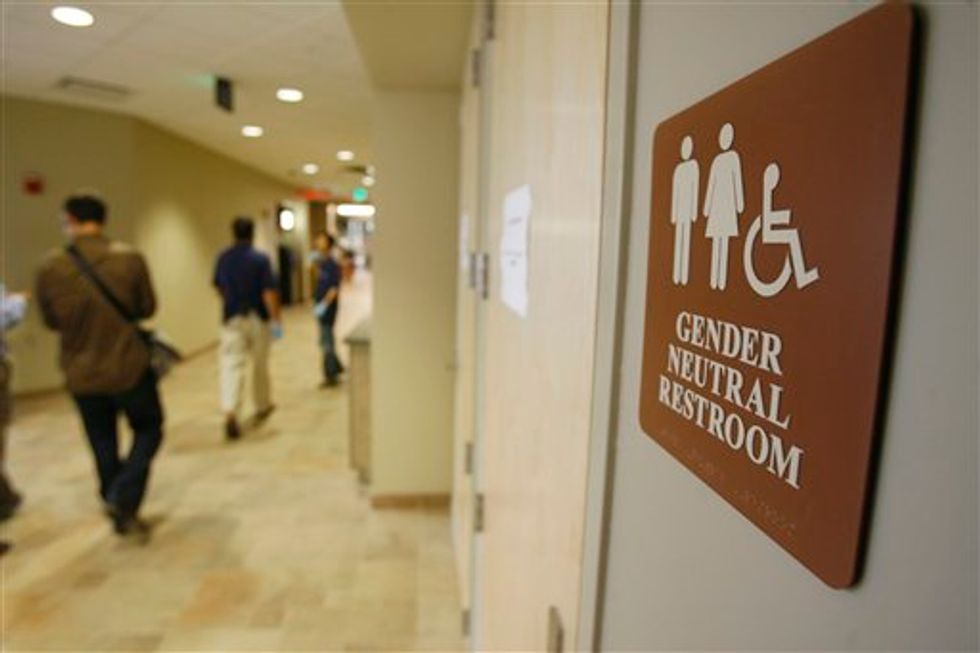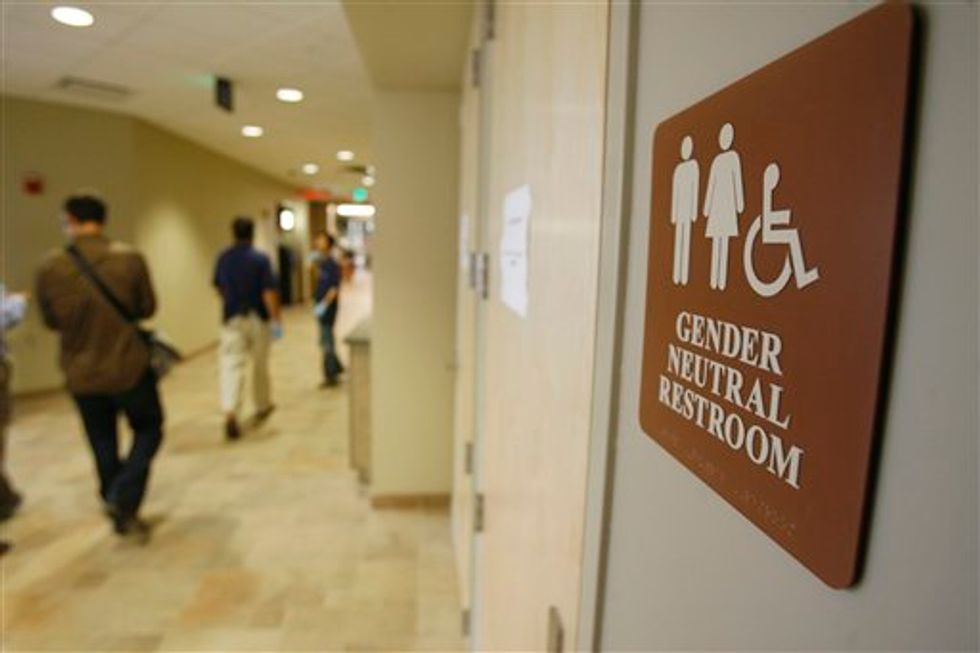
AP Photo/Toby Talbot

RALEIGH, N.C. (AP) -- Legislators worked in a special session Wednesday and considered stopping any local government in North Carolina from passing an ordinance like the one Charlotte recently approved allowing transgender people to use the restroom aligned with their gender identity.
If the bill passes the Republican-controlled Legislature as expected and ultimately becomes law, it will deal a blow to an LGBT movement that has had success getting similar ordinances approved in more than 200 cities across the country.

Republican leaders at the General Assembly scheduled a one-day session after enough lawmakers requested to reconvene. They were responding to worries from constituents and conservative activists about the provision in the state's largest city that's set to take effect April 1. Otherwise, they wouldn't have met again until late April.
Republican House Speaker Tim Moore has said intervening is necessary to protect the safety of women and children. There have been arguments that any man - perhaps a sex offender - could enter a woman's restroom or locker room simply by calling himself transgender.
"What we're doing is preserving a sense of privacy that people have long expected in private facilities and we are restoring and clarifying ... the existing authority and limits of authority of local government," said GOP Rep. Dan Bishop, who represents Charlotte, a bill sponsor.
The measure cleared a House committee on a voice vote. It now heads to the House floor. It also must go to the Senate.
The bill would go beyond just overturning Charlotte's ordinance. All local governments statewide would be barred from prohibiting discrimination in public places based on sexual orientation and gender identity going forward, as Charlotte did.
The bill directs all public schools, government agencies and public college campuses to require bathrooms or locker rooms be designated for use only by people based on their biological sex. Transgender people who have transitioned to the opposite sex wouldn't be affected if they get their birth certificate changed.
But representatives for gay rights groups said overturning the ordinance is wrong and demonizing the community. They say blocking the ordinance will deny lesbian, gay, bisexual and transgender people essential protections needed to ensure they can get a hotel room, hail a taxi or dine at a restaurant without fear.
At least 225 cities and counties nationwide have passed similar anti-discrimination laws.
"Charlotte's law is not unusual, unique or radical," said Chris Sgro, executive director of Equality North Carolina. "A special session to deal with such an ordinance is radical, unique and unusual."
Leading up to last month's approval in Charlotte, city leaders heard from LGBT residents who say they've experienced harassment and discrimination trying to use public accommodations.
The ordinance "sends a message to everyone that we matter," Erica Lachowitz of Charlotte, who was born male but identifies as female, said last week. Otherwise, she added, "we are afraid half the time to walk in to a bathroom that matches our gender identity."
Gov. Pat McCrory, a Republican, has criticized the ordinance in Charlotte, where he was mayor for 14 years, and wants action. McCrory didn't call the special session, which costs $42,000 each day. He would be asked to sign any bill into law, but a top aide had concerns this week the bill's scope - raising questions about what his response will be.
Legislation requiring transgender students to use bathrooms corresponding with their birth gender have failed recently in other states. South Dakota's legislature failed to override Gov. Dennis Daugaard's veto of such legislation. A similar Tennessee bill died Tuesday in a House committee.
The bill in North Carolina would also make clear local governments can't require area businesses to pay workers above the current minimum wage, with some exceptions.